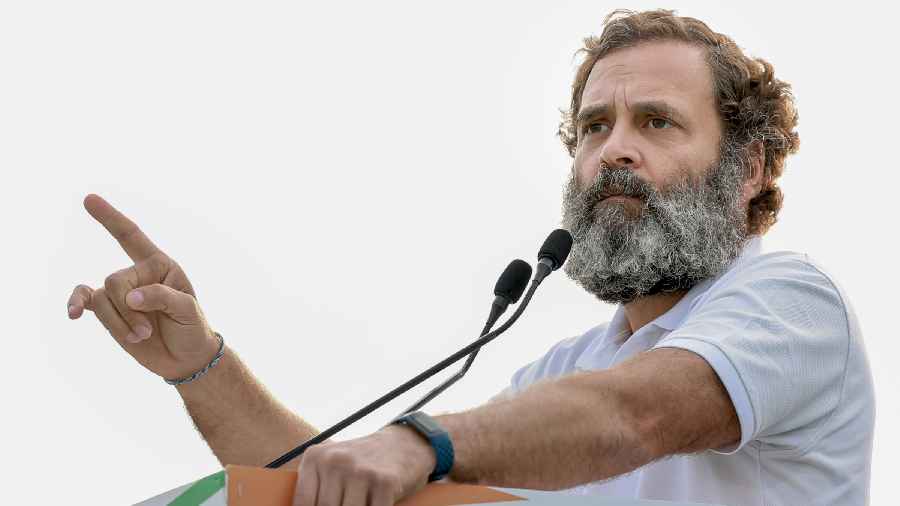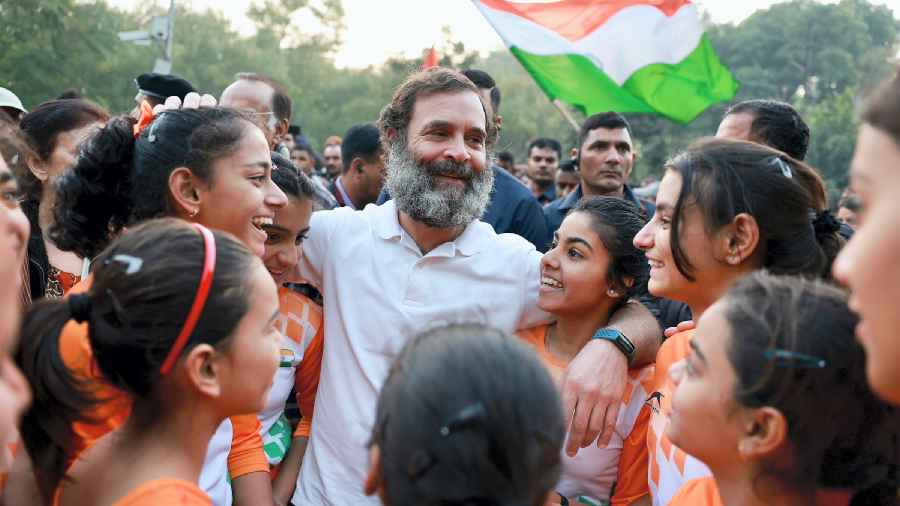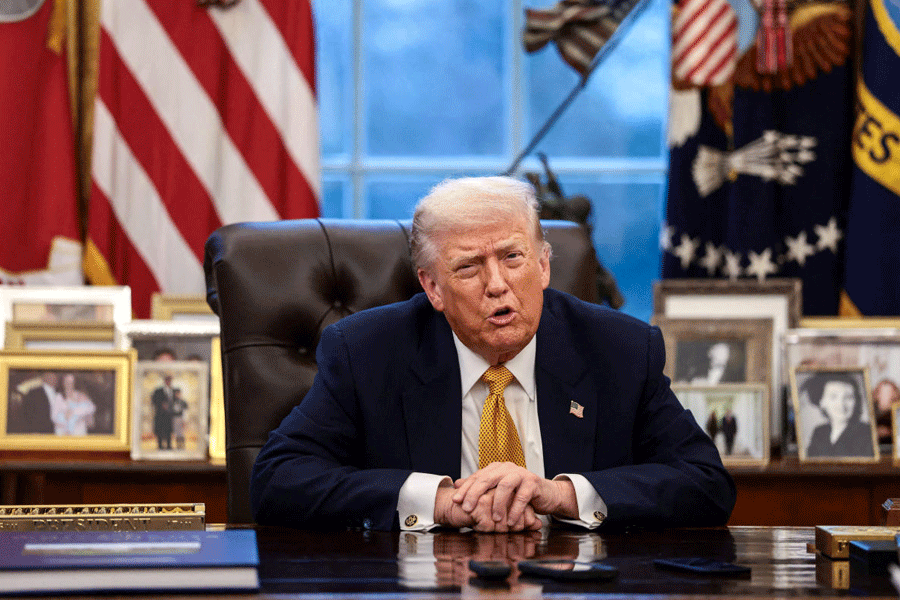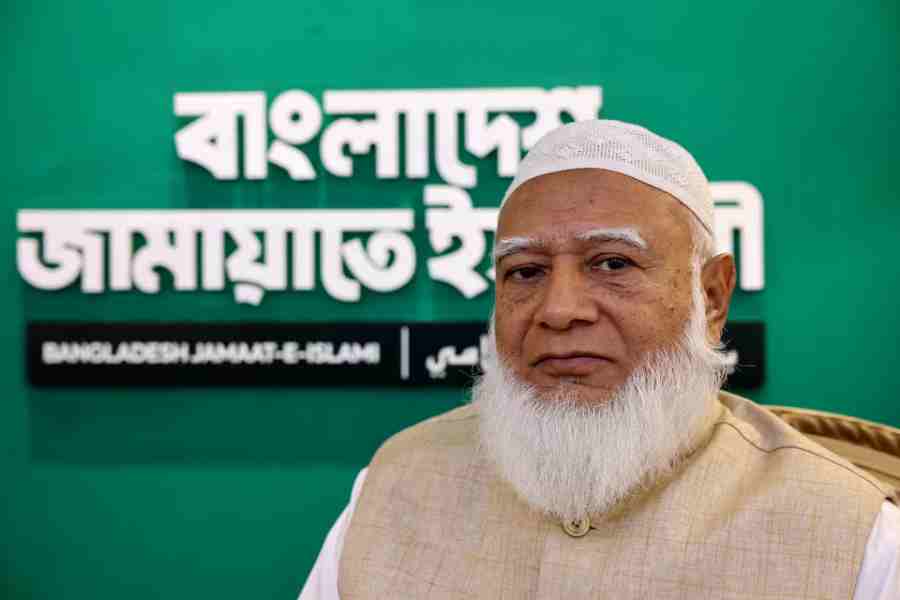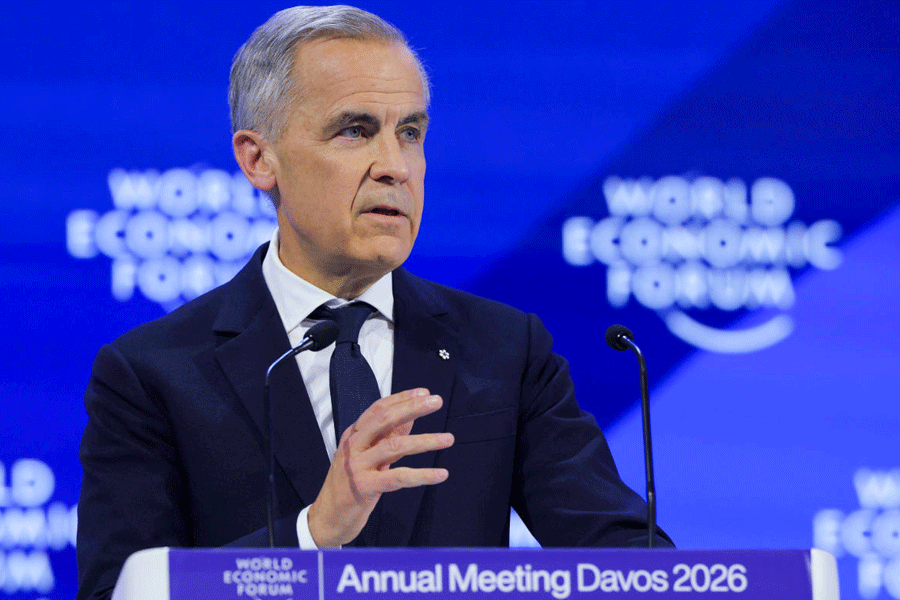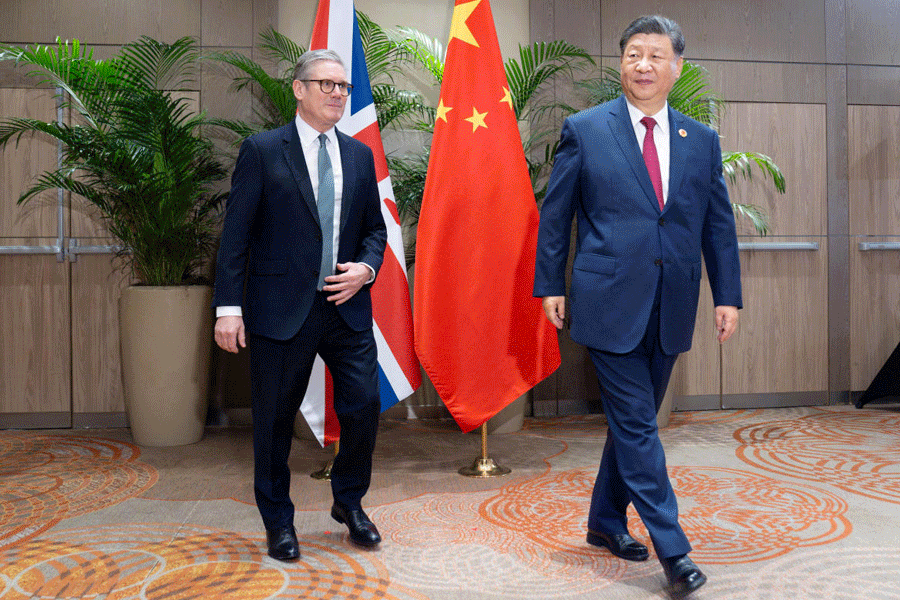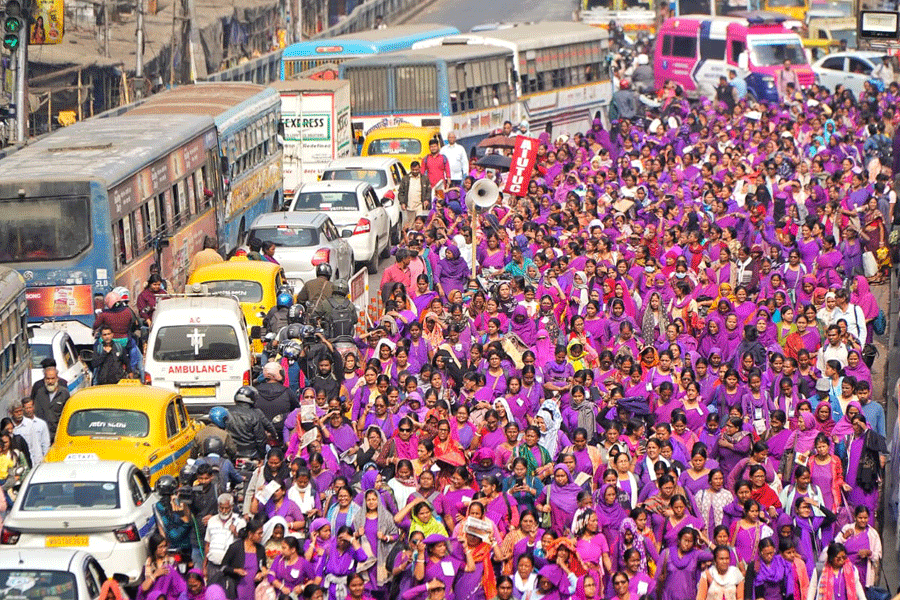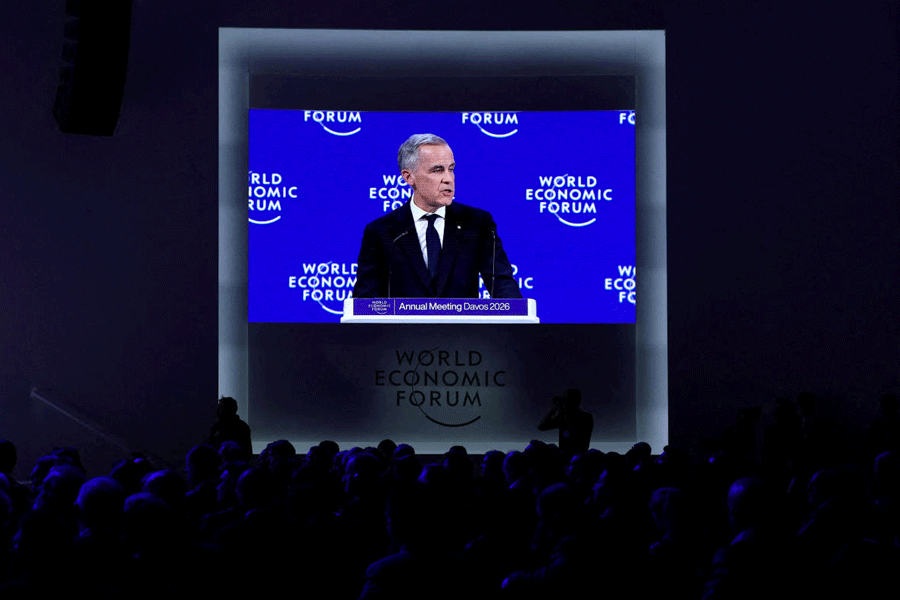Masks and vaccination certificates are not required for travel in the country now, except for those who are walking in the Bharat Jodo Yatra.
Union health minister Mansukh Mandaviya wrote to Rahul Gandhi on Tuesday, citing a request from three MPs to ensure that masks are worn by the Yatris, only those who are vaccinated against Covid-19 are allowed to walk, and the walkers are made to isolate before and after joining the Yatra.
Suspend the Yatra in view of the “public health emergency” if it is not possible to follow the above “protocol”, the minister’s letter adds, again citing the MPs’ request.
The guidelines for international travel issued by Mandaviya’s ministry on November 21 say that all travellers should “preferably” be fully vaccinated, use of masks is “preferable” and any passengers “having symptoms of Covid-19” should be isolated.
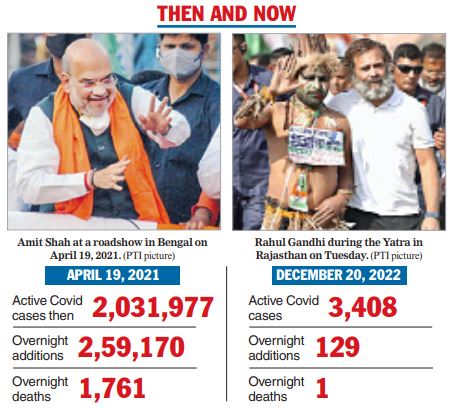
A Covid review meeting that Mandaviya chaired on Wednesday — a day after he had written to Rahul — did not change these guidelines to make the Covid precautions mandatory.
However, Mandaviya said on Wednesday: “I cannot neglect my duty of stopping potential Covid spread just because one family perhaps believes it’s above the rules.... No one is entitled to special treatment.”
It is not clear which rules the minister was referring to.
The Yatra led by Rahul, which started in Kanyakumari on September 7 and has drawn large crowds in each of the nine states it has covered so far, is due to reach New Delhi on Saturday.
During the recent elections in Gujarat and Himachal Pradesh, the Prime Minister, senior ministers and Opposition leaders were all seen addressing large rallies where no Covid protocol appeared to be followed.
Even on Wednesday, ministers as well as MPs across parties were seen attending Parliament without masks on.
After the Covid review meeting, Niti Aayog member V.K. Paul, chairman of the country’s Covid-19 task force, asked people not to panic. He, however, advised caution.
“People should wear masks in crowded areas. Those who have comorbidities or are elderly should especially adhere to this,” Paul said. He also called on people who had not taken the booster dose of the vaccine to do so.
A rise in counts of new Covid-19 cases in China, Japan and South Korea, among other countries, has been driving a rise in global cases over the past six weeks to reach 590,000 daily average during the week ending December 19.
“Covid is not over yet,” Mandaviya tweeted.
The Union health ministry had not stepped in during early 2021 when Covid protocol was violated at election rallies and in the Kumbh Mela.
Health officials had appealed for Covid-19 precautions, such as avoiding crowds and using face masks, but decision-makers did not let those calls for caution block the election rallies or the Kumbh mela in Hardwar, two health experts who were members of India’s Covid-19 task force had told this newspaper last year.
“Who was listening? The decision-making apparatus was elsewhere,” a member speaking on condition of anonymity had said. “The task force was at times like a dummy agency – an echo chamber, with little or no discussions on policies or steps that could have been recommended.”
Experts in government and academic institutions had attributed the size and the large death toll during India’s second Covid-19 wave that peaked in May 2021 to complacency among decision-makers as well as laxity on Covid-19 protocols by the public, amid poor preparedness.
“In early 2021, we had all that was required for a perfect storm,” said Anurag Agrawal, the dean of biosciences and health research at the Ashoka University, Sonipat (Haryana). Crowds in markets, crowds at election rallies, crowds at the Kumbh mela, the fast-spreading delta, and low vaccination coverage.
India’s population now is better protected. Experts say India’s three Covid-19 waves and its 23-month-long Covid19 vaccination campaign that has covered over 90 per cent of adults have rendered its population better protected now than it was in early 2021, ahead of the brutal delta wave.
“India is well-placed from an immune protection standpoint because of extensive vaccine coverage. And those who’ve survived a bout of Covid-19 have acquired immunity,” said Rajeev Jayadevan, a physician in Cochin and co-chair of the Indian Medical Association task force on Covid-19.
A large fraction of India’s population also has hybrid immunity, resulting from natural infection and vaccination which, Jayadevan said, is more durable than immunity from vaccination alone.
The Union home ministry ended Covid-19 containment measures on March 31 this year, states have relaxed rules on Covid-19 precautions, and the nation’s educational institutions, cinemas, markets, offices and restaurants have been open for months.
Scientists say the current explosive increase in China’sCovid-19 counts is driven by poor levels of population immunity because of the country’s earlier zero-Covid policy.“What we’re seeing now in China is what was predicted by models to happen.” Agrawal said.
Lab studies have shown that a coronavirus variant called BF.7 is driving the current oubreaks in China. BF.7 is a sub-lineage of BA.5 and both have emerged from the variant called omicron that had swept the rest of the world through early 2022.
“BF.7 has already been documented in India and it hasnot caused any surge to date,” said Rajesh Karyakarte, head of microbiology at the Byramjee Jeejeebhoy Medical College, Pune, who is the Maharashtra state coordinator for sequencing the coronavirus variants.
“We need to maintain vigil, we need to increase genome sequencing of samples,” Karyakarte said. “But the current circulating lineages are not something one would worry too much about. Unless a completely new variant — something as different as omicron was from delta — emerges, our population should be reasonably protected from severe disease.”

